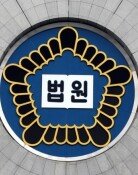[Editorial] Not Reporting, Fearing Orders to Hold Fire
[Editorial] Not Reporting, Fearing Orders to Hold Fire
Posted July. 25, 2004 22:12,
According to Minister of National Defense Cho Young-gil, who answered questions from the National Assemblys National Defense Committee on Saturday, the Navy commander of operations did not report the communications with North Korean vessels--after the intrusion of the North Korean vessel over the Northern Limit Line (NLL)--because he was concerned about orders to hold fire if he reported this fact higher in the chain of command, such as to the joint chief of staff.
This is a very shocking fact. It raises the possibility that the absence of the report was not due the carelessness of a few military officials, as the joint investigation team reported, but as the result of a serious lack of military discipline, and the essential problem of trust between the military and the government.
Reporting is crucial in the military. Field commanders must not under any circumstances distort or omit reports. If the military begins to worry about the political consequences created by the report of a commander, then that military is no longer a normal military. Minister Cho said the Navy commander of operations did not report because he was worried that the media would play into North Koreas attempt to create internal disruption by raising the issue of unjust firings. But why should field commanders worry about the media?
President Roh Moo-hyun, after considering the morale of the military, decided to lightly punish those involved in this incident. One should ask if those punishments are adequate. Some point out that the Blue House decided on light punishment, because the Blue House feels guilty about pressing the military hard by judging this incident as the omission of the report by hard-liners in the military who do not want the improvement of South and North Korea. In reality, however, the morale of the military and slack military discipline are different issues.
The problem becomes even more serious if there is a gap in confidence between the government and the military. After all, there are indications that the military and the ruling power have difference perspectives, when seeing North Korea in terms of the reconciliation and cooperation between both Koreas. Whom should we trust to safeguard our security, if the administration judges beforehand that the military is conservative and only headed for conflict, and the military does not trust by heart such an administration? Both sides should work to ensure that a wall of mistrust and separation does not grow up between them. This is the most important lesson of this incident.
Lee Jae-ho leejaeho@donga.com







